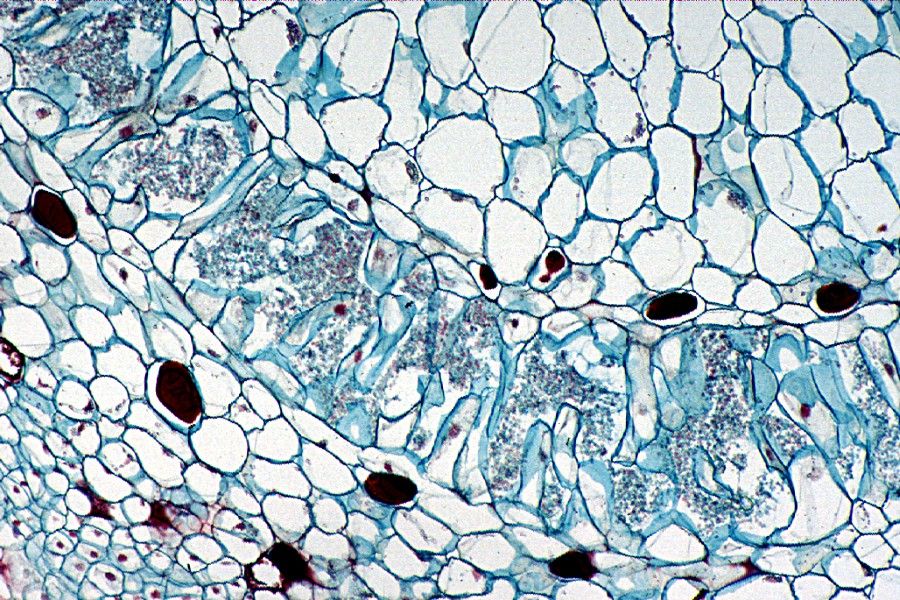Two weeks ago Symbiota, an agtech startup researching beneficial microbes for plant growth, re-branded to become Indigo. The launch of the new name coincided with a $56 million Series B funding round.
We caught up with David Perry, president and CEO of the company, to find out more about the news and the company’s plans for 2016.
Perry has an impressive resume. He has co-founded and helped build three companies in the life sciences and pharmaceuticals sectors, reaching two IPOs and raising over $750 million for them. In 2000, he was named Entrepreneur of the Year in Northern California by Ernst and Young.

Who invested in the $56 million Series B round alongside Flagship Ventures?
Our Series A and Series B were led by Flagship Ventures. Other participating investors include the management team, life sciences venture funds, and individuals that are focused on sustainability investments.
Why did you change the company name?
We believe that the name Indigo more accurately conveys our ambitious goals and values with farmers and consumers. Also, the Indigofera crop was also one of the first agricultural crops in the US.
The Indigo name also has roots in our research. During the process of identifying and sequencing the 40K plant microbes in our collection, we learned a lot. Among those discoveries, we found that some of a plant’s pigments can be modified, produced and influenced by more than just the plant’s biology. Specifically, certain plant-microbe interactions were a precursor in creating the color blue. So, it turns out that many of the qualities of a plant that have been traditionally associated solely with the plants genetics are actually the result of the interaction between the plant and the microbes that live inside of it. We see this as a metaphor for what we do at Indigo; we improve the plant’s microbiome to improve the output of plants.
Have any other changes in the business accompanied the name changes?
Our challenges remain the same: we must increase our planet’s capacity to produce food to support 10 billion people by 2050, and we must do so in a sustainable manner. Our team is united in our purpose: harnessing nature to help farmers sustainably feed the planet.
As part of Indigo’s official launch, we made several announcements:
– We’ve now tested our beneficial microbes on nine different crops, on three different continents, in four separate growing seasons, and we are consistently seeing 10+ percent yield benefits from the most effective microbes on crops grown in targeted stress conditions.
– As part of our extensive R&D efforts, we have identified and sequenced 40,000 plant microbes in our collection. We’ve filed over 150 patent applications, and collected over 36,000 samples from more than 700 plant species around the world and counting.
– We have assembled a world-class team from academia, agriculture, business, and science, which includes the recent appointment of Roger Beachy as chief scientific officer. Among his many achievements, Roger was the chief scientist for the USDA and was appointed by President Obama as the first director of the National Institute of Food and Agriculture.
– Additionally, we added Barry Knight as senior VP of commercial operations, North America, Ray Riley as senior VP of product development, David Easson as VP of bioprocess development and manufacturing and Katie Czerepak as VP of people.
What will you use the funding for?
The majority of the funds will be used to continue our research and development efforts and bring our first products to market.
What products are you working on?
We will be launching two products this year with a focus on water stress.
We haven’t revealed additional details yet, but we are focused on four initial crops – corn, soy, wheat, and cotton. The four initial crops we are focused on represent an annual global production value of approximately $600 billion. A 10 percent increase in the yield of those crops would create approximately $60 billion a year in value.
How do you differentiate Indigo from others researching the microbiome?
Our experience with the human microbiome led to a key insight, which was to us a computational biology approach to focus on identifying beneficial microbes that live within the plants — endosymbionts or endophytes. We believe this insight has led to our significant early results and our rapid development of a broad product pipeline.
Have news or tips? Email [email protected]
Image: A light micrograph of a cross section of a coralloid root of a cycad, showing the layer that hosts symbiotic cyanobacteria, by Curtis Clark on Wikimedia Commons.





